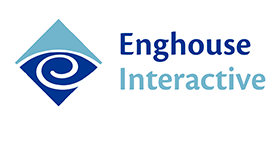An effective call recording or call monitoring system is essential for today’s contact centre. Not only does it help organisations meet regulatory compliance obligations, but it can also assist in dispute resolution and has an important role to play in improving call centre performance.
It can be used to extract actionable insights from conversations and to reward good performance, or to provide real-time alerts if a call is not going well – particularly useful in a hybrid world where supervisors and agents are not in the same location.
In fact, call recording is one of the most widely used contact centre technologies, embraced by 93% of the organisations in the latest UK Contact Centre Decision-Maker’s Guide from ContactBabel. And the technology is evolving, with new capabilities such as speech analytics and AI now available, and new needs driven by hybrid working.
Consequently, nearly a quarter (23%) of those surveyed by ContactBabel want to replace or upgrade their current system.
In a changing world, here are 5 key best practice considerations to help you maximise the benefits of call monitoring within your contact centre.
1. Start by Being Crystal Clear With Your Objectives
Call monitoring is hugely versatile, providing the potential to address a wide number of requirements, from supporting the agent onboarding process, and assessing how individual agents are performing, to analysing emotion within calls.
You can also use it to evaluate the customer experience, combining sentiment analysis and metrics around First Contact Resolution (FCR).
Because it has the potential to do so much, it is vital to be clear about the end goals that you are looking to achieve.
Whether you’re focusing on improving agent performance, enhancing customer satisfaction, or optimising business processes, you need to ensure that you are monitoring performance against pre-defined KPIs, giving you the flexibility to put improvement plans in place where required.
2. Use Technology to Ensure You Are Meeting All Your Compliance Obligations
With many agents working from pre-defined scripts, especially in regulated industries, it’s essential to track compliance with processes and also to review script content regularly to ensure they remain relevant.
These are fundamental to any call monitoring and evaluation programme and the latest tools can deliver real value. For example, they can check that the agent has reminded the customer that the call is being recorded and that they are using the recommended welcome statement.
AI and speech analytics can be particularly helpful by allowing organisations to highlight key phrases that agents need to say and to check whether compliance requirements are being met in real-time, giving agents feedback and reminders if they miss anything.
3. Support Agent Performance Measurement With AI and Speech Analytics
Historically contact centres measured agent performance by requiring supervisors to listen to call recordings and to manually complete scorecards.
The laborious, time-consuming nature of this task meant that it has seldom been viable to review more than 5% of agent calls, meaning the assessment of agent performance can often be patchy and imperfect.
This is where AI and speech analytics technology are driving big improvements. Their fast-processing speeds allow organisations to evaluate a significantly higher proportion of calls than a human supervisor alone.
They can also automatically identify and track performance against KPIs, whether that is customer experience or FCR rates.
While speech analytics and AI are unlikely to ever replace the human evaluation of agents, they can help supervisors by providing access to a much wider pool of data, augmenting their performance.
4. Help Improve Sales Performance With AI
Previously, ensuring that scripts were effective was a time-consuming, manual process. Now AI can help supervisors set up dashboards, highlighting the most and least successful scripts when it comes to delivering on specific KPIs, such as sales or retention.
Companies can then take steps to modify either the agent approach or the script. AI is increasingly capable of delivering these insights with greater reliability and much faster than a human can, thanks to the increased accuracy of call recordings and transcripts.
5. Don’t Rely on Call Recording in Isolation
Call recording was originally embraced by the contact centre community to help tackle compliance – the technology makes it very easy to prove what was said in a call if a regulator, lawyer, or customer ever asks. Today, however, it is now able to do much more through deeper analysis.
It is important to look at it as part of a holistic approach. For example, many organisations now use a combination of call and screen recording to identify where a service or a process has broken down.
Simply listening to a recording of an agent giving incorrect advice, you might conclude that the agent is at fault. However, by playing back both the call and screen recording you could see that the support documentation the agent was accessing was wrong – and could cause similar problems for other agents if it is not updated or replaced.
So, combining call and screen recording can identify gaps in the underlying knowledge management system that underpins your customer service or other issues in your process that need to be fixed.
The advent of hybrid working and the rise of AI are both deepening the importance of call monitoring within every contact centre.
Real-time analysis enables supervisors to better support remote agents, while AI and speech analytics deliver greater value in areas such as process compliance and sentiment analysis.
Following these five tips and investing in the latest technology will help companies unlock these benefits and drive greater success.
This blog post has been re-published by kind permission of Enghouse Interactive – View the Original Article
For more information about Enghouse Interactive - visit the Enghouse Interactive Website
Call Centre Helper is not responsible for the content of these guest blog posts. The opinions expressed in this article are those of the author, and do not necessarily reflect those of Call Centre Helper.
Author: Enghouse Interactive
Published On: 26th Apr 2021 - Last modified: 27th Apr 2021
Read more about - Guest Blogs, Enghouse Interactive






 Enghouse Interactive delivers technology and expertise to help bring your customers closer to your business through its wide range of customer contact solutions.
Enghouse Interactive delivers technology and expertise to help bring your customers closer to your business through its wide range of customer contact solutions. 





























